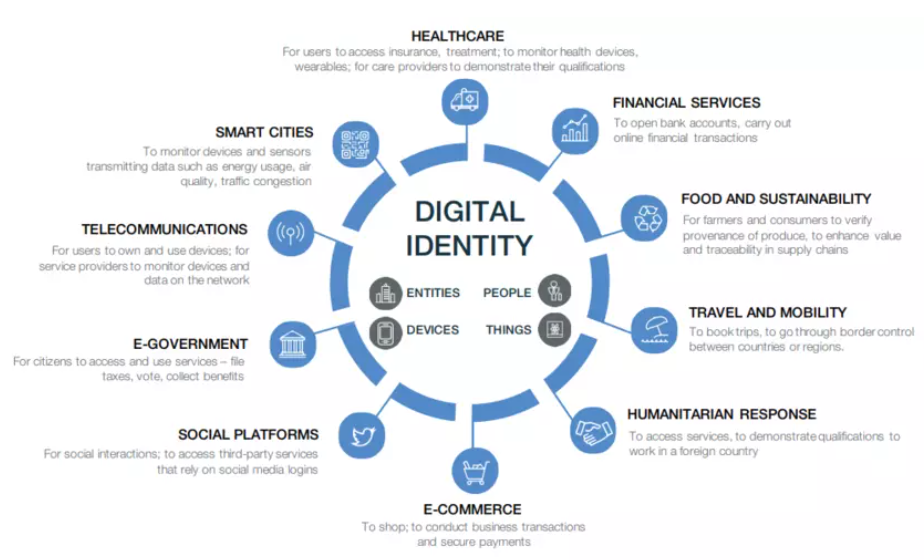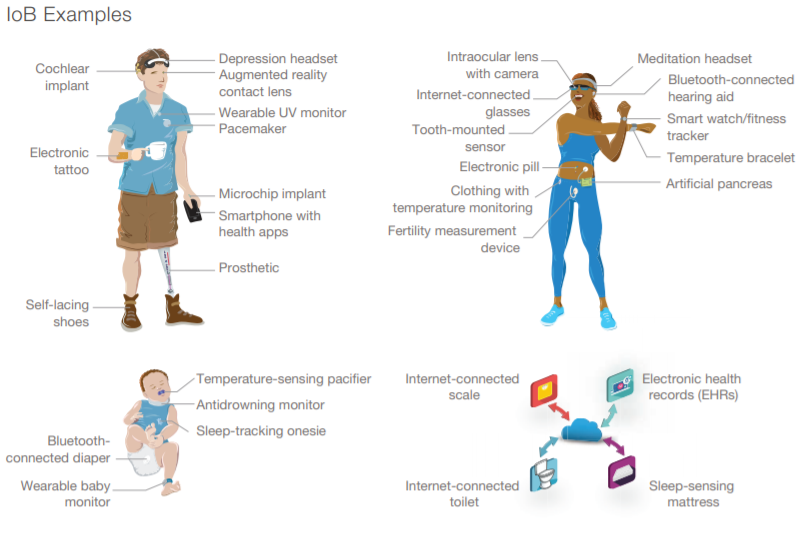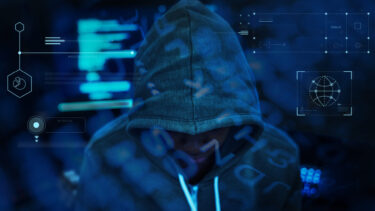When a sweeping solution to a hyper-generalized problem oversteps the boundaries of personal privacy and liberty, the solution poses a greater threat to the people than the problem it proposes to solve.
As part of its “great reset” agenda to reshape the global economy, the World Economic Forum (WEF) wants everyone on the planet to be linked with a digital identity.
“This digital identity determines what products, services and information we can access – or, conversely, what is closed off to us” — WEF report
And while digital identities show great promise towards improving the livelihoods of millions, they are also used by authoritarian governments to profile and police citizen behavior under a social credit system.
The idea behind digital identities is simple enough. All the data collected from every online interaction you make with the private and public sectors goes into forming your digital identity.
This data can include your personal:
- Search history
- Social media interactions
- Online profiles
- Device location
- Medical records
- Financial ledgers
- Legal documents
- And more
As far as personal convenience goes, having a digital identity that consolidates everything into one place can be a godsend in that you can use your digital identity for a variety of goods and services wherever you go, and all of your data can be secured on the blockchain.
But, like with any technology, trust comes from knowing how it’s used, and knowing who benefits the most from the people who use it.
“With a few tweaks of code, blockchain can be corrupted by authoritarians to build social credit enslavement systems,” Trent Lipinski recently warned in the Coin Telegraph.
“If world governments legislate encryption technology for their own purposes and pervert consensus mechanisms for their own centralized enslavement systems, we will end up with digital currencies that can be used against the people of the world,” he added.
“What the Fourth Industrial Revolution will lead to is a fusion of our physical, our digital, and our biological identities” — Klaus Schwab, WEF
On the flip side, there are many ways of applying this technology for the good of humanity.
For example, last week, the WEF highlighted an app developed by Irish blockchain company AID:Tech, which helps people without official documents create personal legal identities.
Healthcare, security, finances and identity – for the very first time. ? Read more: https://t.co/skbruqhGbO pic.twitter.com/OuscxjmMFZ
— World Economic Forum (@wef) November 20, 2020
However, there’s a big difference between identity and identification.
Providing a piece of identification to someone who didn’t have official documents to begin with is one thing; it’s an entirely different matter when the concept is expanded to including connecting every person on the planet with a digital identity that keeps a tamper-proof record of their behavior.
Identity encompasses everything that makes you unique, and your identity is what the WEF is really interested in.
Step out of line, and every social media interaction in which you partake, every penny you trade, and every move you make — can be used against you
According to a WEF report from 2018, “Our identity is, literally, who we are, and as the digital technologies of the Fourth Industrial Revolution advance, our identity is increasingly digital.”
Similarly, WEF Founder Klaus Schwab predicted that the Fourth Industrial Revolution would bring about the “fusion of our physical, our digital, and our biological identities.”

Image Source: World Economic Forum
By connecting your every online/offline interaction, the WEF envisions your digital identity being linked to:
- Every click, comment, and share you make on social media
- Every financial transaction you record
- Your location and where you travel
- What you buy and sell
- Your personal health data and medical records
- The websites that you visit
- Your participation in civic functions (i.e. voting, taxes, benefits, etc.)
- How much energy you consume
- And more
Thus, your digital identity becomes an account of your social behavior, which can be policed.
“This digital identity determines what products, services and information we can access – or, conversely, what is closed off to us,” according to the same WEF report from 2018.
In other words, there will be a class system where people are given access to privileged information, products, and/or services based on the data recorded in their digital identities.
The Internet of Bodies “might trigger breakthroughs in medical knowledge […] Or it might enable a surveillance state of unprecedented intrusion and consequence” — RAND Corporation report
But what problem could possibly be so severe that its solution warrants cataloguing every individual on the face of the earth in such a sweeping way?
According to the WEF, the problem to be solved is “capitalism” as it relates to societal structures and the global economy.
The all-encompassing great reset is their proposed solution — a means to an end where everyone’s behavior is time-stamped and recorded on their digital identity.
But if you thought that your digital identity was just an app on a smartphone, wait until you hear how the WEF wants your digital identity to be connected to your physical body through the Internet of Bodies (IoB).
The IoB is an ecosystem consisting of “an unprecedented number of sensors attached to, implanted within, or ingested into human bodies to monitor, analyze, and even modify human bodies and behavior,” according to the WEF’s 2020 briefing on the IoB.

Internet of Bodies Examples, RAND Corporation
With the proposed Internet of Bodies, not only would your every societal behavior be recorded, but also everything you did in private.
Sensors that detect when you go to the toilet, where you sleep, your temperature, and even how fertile you are, will all be connected to the internet within the IoB ecosystem.
Now, who could possibly benefit from the massive consolidation of every intimate detail of your life?
According to a recent RAND corporation report, the IoB “might trigger breakthroughs in medical knowledge […] Or it might enable a surveillance state of unprecedented intrusion and consequence.”
The Chinese Communist Party (CCP) has taken the notion of the IoB to create an Orwellian surveillance state that pegs the digital identities of its “netizens” to a social crediting system.
From “deadbeat debtor” contact tracing apps that alert citizens with a warning whenever they come with 500 meters of someone who is in debt to the DNA phenotyping of over 1 million Uyghurs sent to “re-education” camps — the CCP is a living example of some of the horrible ways in which digital identities can be exploited.
Now, take a look at the strict lockdown procedures taking place across the world.
In some areas, you aren’t allowed to be out past curfew, you’re not allowed to buy or sell certain products, you’re not allowed to open your business, and you’re being told to wear a mask in your own home.
If you had a digital identity like the WEF proposes, the authorities would know the moment you broke curfew, went somewhere they told you not to, opened your business after they said shut it down, or let your mask slip down when they told you to keep it up.
The great reset is not a mandate from the people — It is a manufactured ideology concocted by a group of un-elected globalists trying to sway “stakeholders” into creating a new economy and social structure out of the destruction of the old
As far as a social engineering experiment goes, when people know that their every move is being recorded, they will police themselves into conformity.
Just knowing that they’re being watched will cause people to change their behavior, and this makes the job of the technocrat even easier.
When digital solutions are presented on a case-by-case basis for real-world problems that need immediate attention, companies like Aid:Tech have stepped up in a big way.
But when an all-encompassing solution to a vague, generalized problem like “the global economy” oversteps the boundaries of personal privacy and liberty, the solution constitutes a greater threat to the people than the problem it proposes to solve.
“Our identity is, literally, who we are, and as the digital technologies of the Fourth Industrial Revolution advance, our identity is increasingly digital” — WEF report
Digital identities can help better the lives of everyone on the planet.
But should society’s fate be mandated from the Davos elite?
After all, the World Economic Forum has been pushing for a great reset of the global economy and society for years.
And between 2018 and 2019, they staged two pandemic scenarios called “Clade X” and “Event 201” respectively, in which they simulated that the world wasn’t prepared for the next pandemic while recommending solutions that were in lock-step with the great reset.
Then in 2020, the pandemic magically represented “a rare but narrow window of opportunity” to carry out their plan.
Out of the coronavirus chaos, the elite began exploiting a global crisis to push their agenda with a top-down approach to governance.
The great reset is not a mandate from the people.
The great reset is a manufactured ideology concocted by a group of un-elected globalists trying to sway “stakeholders” into creating a new economy and social structure out of the destruction of the old.
To see the type of future they wish to impose upon you, take a look at this article from Time, “It’s 2023. Here’s How We Fixed the Global Economy,” which describes a technocratic Utopia where:
- The world embraced a “new normal”
- Governments used a digital revolution to improve public services, from digital health to e-cards, and create a citizen-centered welfare state
- COVID vaccine distribution was led by the WHO and the Bill and Melinda Gates Foundation
- European governments were eager to learn from DARPA to spur research and development in high-risk technologies
- The US shale sector was allowed to fail
- A new concept of a Healthy Green Deal emerged
- The concept of “social infrastructure” became as important as physical infrastructure
- The most valuable citizens were those who worked in health and social care, education, public transport, supermarkets and delivery services
If the un-elected elites get their way, you will own nothing.
You will have no privacy, and your every move will be linked to your digital identity as you await confirmation of approval or denial in collecting your benefits under a “citizen-centered welfare state.”
And you better do what you’re told because every action will be connected to your digital identity.
Step out of line, and every social media interaction in which you partake, every penny you trade, and every move you make — can be used against you.
A timeline of the great reset agenda: from foundation to Event 201 and the pandemic of 2020
Brazil says ‘no’ to great reset: ‘Totalitarian social control is not the remedy for any crisis’












